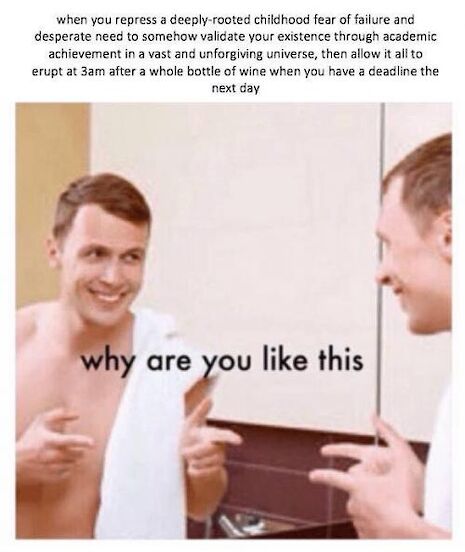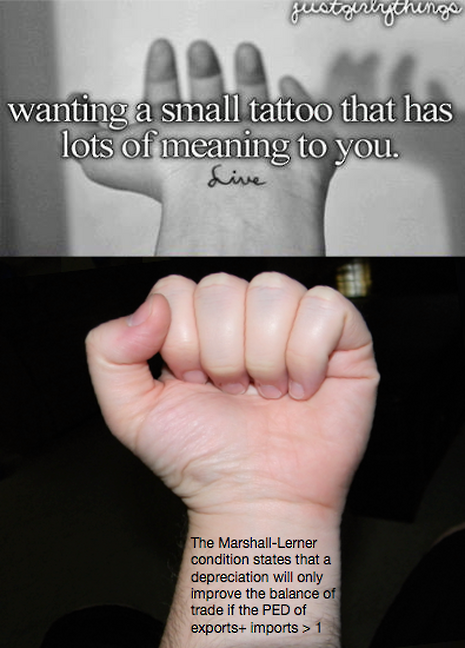The selfish meme
Columnist Sam Brown discusses how this increasingly pervasive form of communication can paradoxically drive us all further apart

It is fair to say the human race is no longer governed by natural selection as Darwin conceived it. Not being able to run the hundred metres in under 12 seconds no longer equates to death by hungry wolves. But this is not to say Darwinism is dead with regards to human affairs. No – it lives on in man’s most curious, recent cultural phenomenon: the internet meme.
Pepe the frog, Doge, Bad Luck Brian, and the recent ‘No Context trend’ are all final products of an immensely competitive and Darwinian market for memes that thrives off the social media user’s love of easily replicated linguistic and aesthetic tropes, and a natural human desire to be in on collective jokes. The term famously originates from Richard Dawkins’ 1976 publication The Selfish Gene, in which Dawkins defines a meme as “an idea, behaviour, or style that spreads from person to person within a culture.” While this definition clearly emphasises the communicative power of mimetics, the internet meme subset arguably breaks this trend.
“Meme-tagging is not communication, but rather an easy means of self-praise and advertisement.”
The internet meme is designed to go viral. Accessibility, simplicity, and a healthy dose of originality are therefore key. However, this drive for viral success can encourage a narrow perception of the world, through the lens of stereotypes both good and bad, tropes, and easily quotable witty comments. I often look back retrospectively over conversations with friends and note how pervasively meme culture underlines not just the content of discussion, but our speech itself. ‘Real’ conversation makes way for endless quoting of various cultural soundbites: ‘first world problems,’ ‘haters gonna hate,’ ‘four naan, Jeremy?’. The list goes on. While it is undoubtable that this mutual sharing of meme knowledge is enjoyable, it arguably prevents true emotional expression.
The rise of student-based meme pages is partly thanks to a popular demand for a medium that packages the complex, conflicted, and existential emotions that students can feel during their studies into easily relatable forms. Memebridge – the now well-known unofficial meme page for the University of Cambridge – thrives on this packaging-down effect, using humour to criticise the feelings of anxiety and inadequacy that highly-worked Cambridge students often feel. There is certainly a danger inherent in compressing complex mental health issues into aesthetically pleasing and provocative memes.

Looking at what makes a meme successful and go viral can help explain why they’re an ultimately uncommunicative medium. The perfect meme is one which causes instant emotional contagion – in other words, the viewer quickly feels similar emotions to the person or persons the meme is depicting or interacting with. Effective memes also balance the façade of appearing niche or original while in fact appealing to a mass audience. Ari Spool, a ‘meme scientist’ at the website Know Your Meme, argues in an interview with Vice that far-reaching memes, “while they may appeal widely, have the appearance of an inside joke that everyone is sharing and owning and creating.” The act of tagging someone in a meme, on its face an act of individual expression, is therefore simply perpetuating the spread of generic ideas or notions, made to look interesting through engagement with a recent topic or event.

Internet meme culture is closely intertwined with the psychology of sharing one’s thoughts. A 2012 study by Harvard neuroscientists concluded that sharing viewpoints with other people is, paradoxically, a self-serving action. The study found that the mesolimbic dopamine system — the part of the brain that creates the pleasure-inducing hormone dopamine — was more engaged by questions about the test subject’s own opinions and attitudes than by questions about the opinions and attitudes of other people. Self-disclosure, rather than simply communicating, is thus the central purpose of social media and meme culture. As if wanting to ironically prove the findings of the study, journalists and bloggers subsequently wrote a mass of articles exploring this idea, including Today’s dubiously titled ‘Oversharing on Facebook as satisfying as sex?’. Alas, there is no scientific evidence to back up this hypothesis.
Memes facilitate this self-disclosure while appearing to bring us closer together. Liking evermore ironic meme pages on Facebook becomes an act of self-advertisement, an act of commentary upon the banality of memes themselves. Elastic Economics Memes for Entrepreneurial Teens is a case in point. The page imposes economic theories upon generic meme formats to comic effect, whilst the act of tagging of someone in these pseudo-intellectual memes effectively announces to the world how ironically clued-up you are in your Keynes and Macroeconomic theory. In this way, meme-tagging is not communication, but rather an easy means of self-praise and advertisement.

As innocent as the name sounds, memes are a powerful cultural phenomenon. Political ‘meme warfare,’ a term originally coined by social-change activist Andrew Boyd, was particularly prevalent during the 2016 US election, in which the meme-medium became seen as an alternative to the corrupt ‘fake news’ of mainstream media outlets. Indeed, it was through memes that Ted Cruz was ‘unmasked’ as the Zodiac killer. Powerful, therefore, in a political as well as social sense, internet memes have conspicuously taken over social media with little to no scrutiny. Despite their seemingly communicative and socialising premise, memes are designed with the selfish human in mind, keeping us divided behind the façade of a collective in-joke
 News / Judge Business School advisor resigns over Epstein and Andrew links18 February 2026
News / Judge Business School advisor resigns over Epstein and Andrew links18 February 2026 News / Gov grants £36m to Cambridge supercomputer17 February 2026
News / Gov grants £36m to Cambridge supercomputer17 February 2026 News / Hundreds of Cambridge academics demand vote on fate of vet course20 February 2026
News / Hundreds of Cambridge academics demand vote on fate of vet course20 February 2026 News / CUCA members attend Reform rally in London20 February 2026
News / CUCA members attend Reform rally in London20 February 2026 News / Union speakers condemn ‘hateful’ Katie Hopkins speech14 February 2026
News / Union speakers condemn ‘hateful’ Katie Hopkins speech14 February 2026










